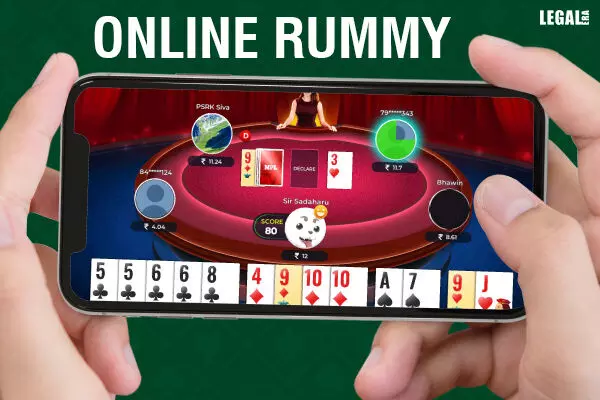- Home
- News
- Articles+
- Aerospace
- Agriculture
- Alternate Dispute Resolution
- Banking and Finance
- Bankruptcy
- Book Review
- Bribery & Corruption
- Commercial Litigation
- Competition Law
- Conference Reports
- Consumer Products
- Contract
- Corporate Governance
- Corporate Law
- Covid-19
- Cryptocurrency
- Cybersecurity
- Data Protection
- Defence
- Digital Economy
- E-commerce
- Employment Law
- Energy and Natural Resources
- Entertainment and Sports Law
- Environmental Law
- FDI
- Food and Beverage
- Health Care
- IBC Diaries
- Insurance Law
- Intellectual Property
- International Law
- Know the Law
- Labour Laws
- Litigation
- Litigation Funding
- Manufacturing
- Mergers & Acquisitions
- NFTs
- Privacy
- Private Equity
- Project Finance
- Real Estate
- Risk and Compliance
- Technology Media and Telecom
- Tributes
- Zoom In
- Take On Board
- In Focus
- Law & Policy and Regulation
- IP & Tech Era
- Viewpoint
- Arbitration & Mediation
- Tax
- Student Corner
- AI
- ESG
- Gaming
- Inclusion & Diversity
- Law Firms
- In-House
- Rankings
- E-Magazine
- Legal Era TV
- Events
- News
- Articles
- Aerospace
- Agriculture
- Alternate Dispute Resolution
- Banking and Finance
- Bankruptcy
- Book Review
- Bribery & Corruption
- Commercial Litigation
- Competition Law
- Conference Reports
- Consumer Products
- Contract
- Corporate Governance
- Corporate Law
- Covid-19
- Cryptocurrency
- Cybersecurity
- Data Protection
- Defence
- Digital Economy
- E-commerce
- Employment Law
- Energy and Natural Resources
- Entertainment and Sports Law
- Environmental Law
- FDI
- Food and Beverage
- Health Care
- IBC Diaries
- Insurance Law
- Intellectual Property
- International Law
- Know the Law
- Labour Laws
- Litigation
- Litigation Funding
- Manufacturing
- Mergers & Acquisitions
- NFTs
- Privacy
- Private Equity
- Project Finance
- Real Estate
- Risk and Compliance
- Technology Media and Telecom
- Tributes
- Zoom In
- Take On Board
- In Focus
- Law & Policy and Regulation
- IP & Tech Era
- Viewpoint
- Arbitration & Mediation
- Tax
- Student Corner
- AI
- ESG
- Gaming
- Inclusion & Diversity
- Law Firms
- In-House
- Rankings
- E-Magazine
- Legal Era TV
- Events
Supreme Court Directs Andhra Pradesh High Court to Decide Whether Online Rummy is Game of ‘Skill’ or ‘Chance’

Supreme Court Directs Andhra Pradesh High Court to Decide Whether Online Rummy is Game of ‘Skill’ or ‘Chance’
It is to be seen in context with the recently notified IT (Intermediary Guidelines and Digital Media Ethics Code) Amendment Rules
The Supreme Court has guided the Andhra Pradesh High Court to take a fresh look at whether online rummy is a ‘game of skill’ or a ‘game of chance’. This happened after a committee constituted by the High Court submitted its report.
In the State Of Andhra Pradesh v. Play Games 24 And 7 Private Limited case, the Government of Andhra Pradesh had moved the Apex Court against the interim order of the High Court. In the absence of material on the online version of the game, the latter had directed to constitute a committee and submit a report on how rummy was played online.
The bench comprising Justice JK Maheshwari and Justice KV Viswanathan asked the high Court to consider the effect of the recently notified Information Technology (Intermediary Guidelines and Digital Media Ethics Code) Amendment Rules, 2023, on online gaming.
The Judges stated, "We think it appropriate that since the order impugned is interim in nature, asking the report from the government, therefore, on producing the said report, the high Court would look into all the issues afresh, uninfluenced by the findings recorded in the order, taking note of the amended rules.”
The Court added that in case the writ petition filed by the respondent gaming companies before the high Court was allowed, its earlier order "shall not be given effect for three weeks."
In January, a division bench of the Andhra Pradesh High Court passed the interim order on a batch of petitions challenging amendments to provisions of the Andhra Pradesh Gaming Act, 1974.
Various gaming platforms contended that though online rummy was a game of skill and exempted from the purview of the Act, it now attracted penalties due to amendments to Section 15 of the 1974 Act.
The High Court had stated that though there was enough material in the form of judgments to show that rummy, played physically, was a ‘game of skill’, however, there was no material to show whether the online version was a ‘game of skill’ or a ‘game of chance’.
It added that without knowing how it was played and how the operator functioned, it would not be correct to decipher the facts. The bench had, thus, ordered the constitution of a committee comprising judicial, technical, and non-technical members, a police officer, and a government representative to investigate the gaming facets.
Senior Advocate Kapil Sibal, along with Advocates Mahfooz Ahsan Nazki, Polanki Gowtham, KV Girish Chowdary, Niti Richhariya, Rajeswari Mukherjee, and Meeran Maqbool appeared for the Andhra Pradesh government.
Senior Advocate Sajan Poovayya and Advocates Durga Bose Gandham, Sanjanthi Sajan Poovayya, Himanshu Vij, and Akhil Anand represented the gaming companies.


